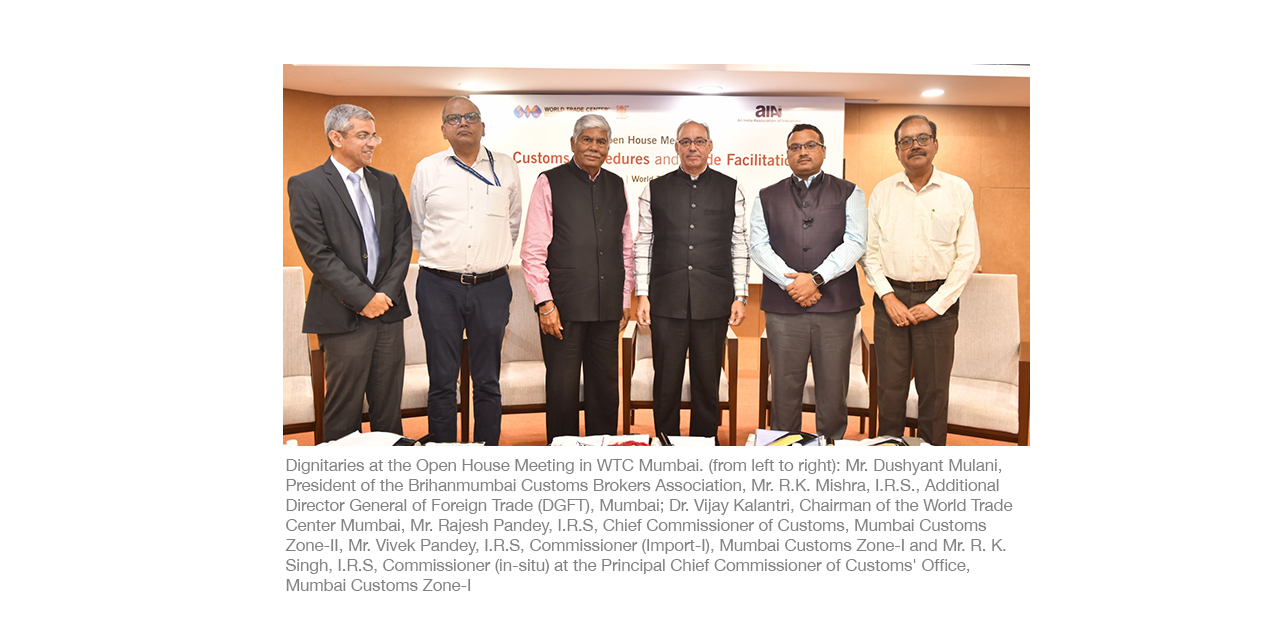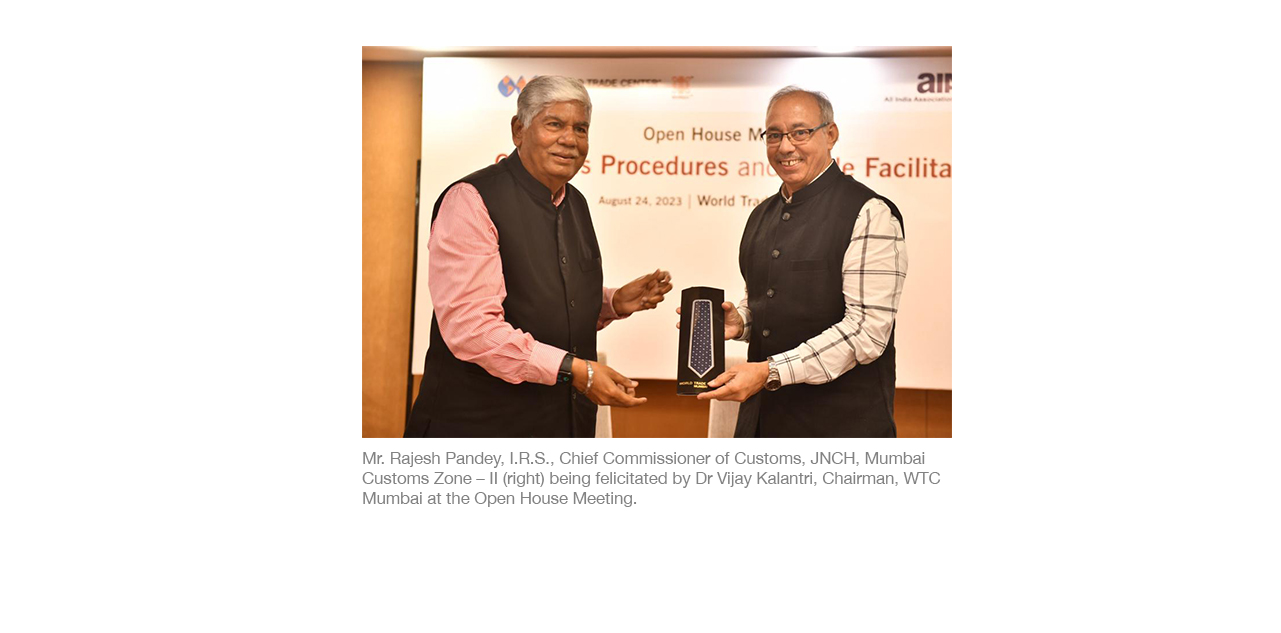India negotiating Mutual Recognition Agreement for AEO program with more foreign countries to reduce dwell time
The Customs Commissioners from India’s leading ports, viz. Jawaharlal Nehru Port and the Mumbai Port shared various digitization initiatives to expedite EXIM cargo clearance process at an
Open House Meeting organised by WTC Mumbai and All India Association of Industries (AIAI).
“The Jawaharlal Nehru Customs House (JNCH), India’s largest customs house in terms of container handling, has initiated the process to introduce Universal Seal Reader (USR) to expedite processing of shipping bills.
Such a Universal Seal Reader will streamline processing of shipping bills by facilitating paper-less process and smooth processing of export cargo. It also has the potential to eliminate the need for
registration of self-sealed containers at the customs when they arrive at the Centralized Parking Plaza (CPP). JNCH has tasked the Custodian of its Centralised Parking Plaza (CPP) to create
software application for integration of all the vendors of electronic self-seal, thereby eliminating the need for scanning the different types of electronic seal individually. Further, this is envisaged
to be taken forward so that the data of the self-sealed export containers can be automatically integrated with the Customs ICEGATE”, said Mr. Rajesh Pandey, I.R.S., Chief Commissioner of Customs, JNCH,
Mumbai Customs Zone – II at the Open House Meeting.
The average time taken by the Indian customs for clearance of import cargo has declined to 85 hours in 2023 because of various digitization and paper-less initiatives undertaken to process import consignments, Mr. Pandey informed.
Mr. Vivek Pandey, I.R.S., Commissioner (Import- I), Mumbai Customs Zone – I suggested importers to opt for the Anonymised Escalation Mechanism (AEM) in case their Bill of Entry is not assessed
within 24 hours under the Faceless Assessment system. Importers can also raise their grievances at the Turant Suvidha Kendra to expedite cargo clearance.
Mr. R K Singh, Commissioner Zone I, Mumbai informed the trade about the system driven trade facilitation to importers and exporters accredited under the Authorised Economic Operator (AEO) program.
He explained the major incentives given to such accredited importers and exporters, namely Defer Payment of Duty, reduced Bank Guarantee, facilitation of their cargo under Mutual Recognition Agreement
(MRA). He informed that India has signed MRA with South Korea, Hong Kong, Taiwan and USA and is in the process of signing similar agreements with other countries like UK, Malaysia , Indonesia etc.
He urged trade to join Indian AEO Program to reduce the clearance time and cost and to ease the Trading Across Border. He asked AEO T1 clients to upgrade to AEO T2 to avail higher benefits.
Mr. Rajesh Pandey Chief Commissioner, JNCH informed that the processing time of AEO application has been substantially reduced and for T2 accredited AEO units, it has been brought under 100 days.
Earlier in his welcome remarks, Dr. Vijay Kalantri, Chairman, MVIRDC WTC Mumbai suggested, “India needs to streamline customs procedures to attain USD 1 trillion merchandise export target by 2030
and USD 5 trillion economy by 2027. The customs authorities may expedite cargo clearance of genuine importers based on their past track records. They should also implement single window clearance
in letter and spirit, simplify compliance procedure and reduce cargo dwell time.”
Dr. Kalantri also called for a predictable foreign trade policy, which avoids frequent ban, restriction or imposition of duties on exports and imports.
Dr. Kalantri suggested that the DGFT and customs authorities may engage with industry frequently through such Open House meetings to address customs related grievances and facilitate trade
The Open House session was moderated by Mr. Dushyant Mulani, President, Brihanmumbai Customs Brokers Association and it was attended by exporters, importers, MSME manufacturers, freight forwarders,
customs brokers and other stakeholders.



 : +91 7718886506
: +91 7718886506